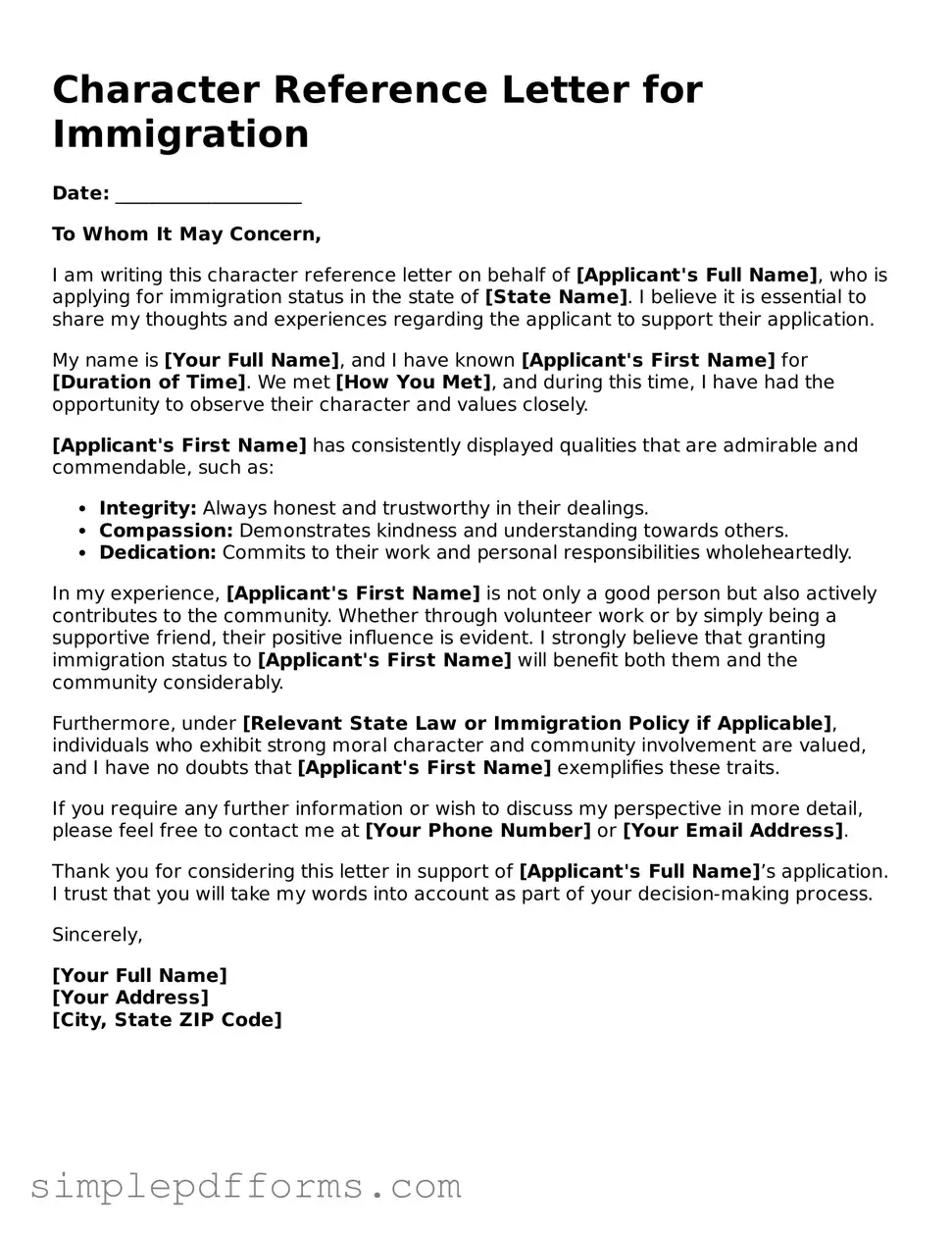Free Character Reference Letter for Immigration Form
The Character Reference Letter for Immigration is a document that supports an individual's application for immigration by providing personal insights into their character and contributions to the community. This letter is typically written by someone who knows the applicant well, such as a friend, employer, or community leader. It serves to affirm the applicant's good moral character and their potential positive impact in the new country.
Open Character Reference Letter for Immigration Editor Now

Free Character Reference Letter for Immigration Form
Open Character Reference Letter for Immigration Editor Now

Open Character Reference Letter for Immigration Editor Now
or
Get Character Reference Letter for Immigration PDF Form
Your form is waiting for completion
Complete Character Reference Letter for Immigration online in minutes with ease.